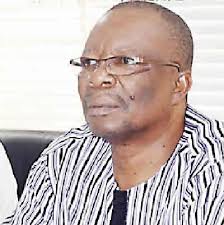The Federal Government and the Academic Staff Union of Universities (ASUU) on Wednesday convened another meeting to discuss industrial relations matters in order to avert the planned strike action by the union members.
News reports indicated that the meeting, which kicked off at about 2.20 p.m. at the Federal Ministry of Education’s headquarters in Abuja, was convened at the instance of the Federal Government.
The Minister of Education, Prof Tahir Mamman, who led the government’s team to the meeting, was quoted as telling journalists that his team would shed light on the actions the government had been taken since its last meeting with the union aimed at avoiding the planned industrial action by the university lecturers.
The minister recalled that a committee was set up to review the ASUU’s demands but could not continue its work due the nationwide protest from August 1-10 this year.
Mamman further clarified: “For us in the ministry, we will continue from where we stopped at our earlier meeting and find ways to progress.
“We share with you the desire to have stability in the education system. The federal government will continue to do what is right to have good education.
“We want to ensure that our students remain in campus and the government is committed to give the university system the best it deserves”, the minister assured.
Speaking to journalists before the meeting moved into closed session, the national President of the ASUU, Prof. Emmanuel Osodeke, lamented over the failure of the government to resolve their lingering demands given before the last union NEC’s meeting on August 19 at the University of Ibadan, when it issued a 21-day strike notice on its proposed strike.
The university don explained that the association suspended the last strike because the lecturers were promised of quick resolution to their demands.
Osodeke expatiated: “For 15 months, all issues raised has not been resolved. We hope that after this meeting we have a landmark of achievements to resolve our issues.”
He maintained that the association was seeking a holistic overhaul of the university system, including the provision of improved infrastructure, enhanced academic freedom, and a more sustainable funding model, as a means of ensuring that Nigerian universities could favourably compete with other universities globally in terms of quality of standards and competencies of Nigerian graduates.






